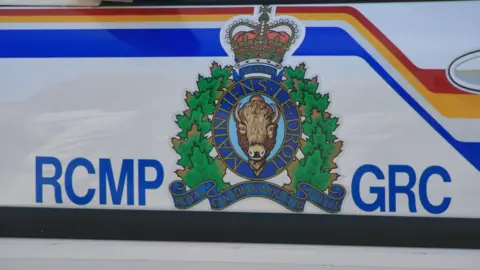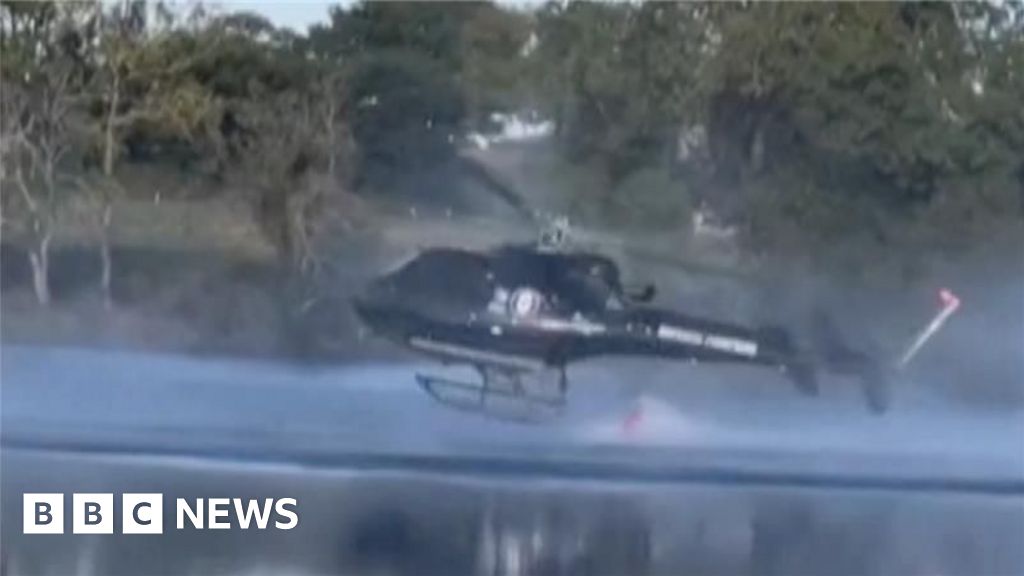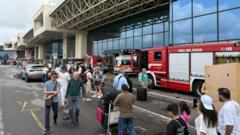The Canadian province of Manitoba is grappling with a severe wildfire crisis as it recently declared a second state of emergency in 2025. Over 100 wildfires were raging across the region, burning an alarming 2.5 million acres of land this year alone—on track to be the highest amount since 1994. As we entered the peak of the wildfire season, which typically spans from March to October, the intensified heat and dry conditions have exacerbated the situation.
As of Friday, officials indicated that at least a dozen fires were considered out of control, creating urgent evacuation orders for nine communities, including Snow Lake and Garden Hill First Nation. "We are declaring a state of emergency to secure additional facilities for thousands of Manitobans who need shelter from these wildfires,” stated Wab Kinew, the premier, during a press conference.
Recent developments saw over 4,000 residents evacuated from the Garden Hill reservation alone, with arrangements made for their accommodation at local venues such as Billy Mosienko Arena and RBC Convention Center in Winnipeg. Enhancing recovery efforts, the federal government dispatched an air force plane to assist with the transport of evacuees, as confirmed by Eleanor Olszewski, the minister of emergency management and community resilience.
Efforts to combat the fires have also seen the involvement of American firefighters, who are joining local teams in battling the flames. However, Kinew criticized certain U.S. Congress members for politicizing the wildfires while lives were at stake in Manitoba. He responded to a letter from six Republican representatives who expressed concerns about the impact of smoke on American states, imploring the Canadian government to take action. “This is what turns people off from politics,” he remarked, condemning attempts to trivialize a crisis that has already taken lives and displaced thousands in the province.
Hopes for control of the situation are mixed, as Manitoba continues to navigate an exceptionally challenging wildfire season, with the impact expected to resonate both domestically and across borders.
As of Friday, officials indicated that at least a dozen fires were considered out of control, creating urgent evacuation orders for nine communities, including Snow Lake and Garden Hill First Nation. "We are declaring a state of emergency to secure additional facilities for thousands of Manitobans who need shelter from these wildfires,” stated Wab Kinew, the premier, during a press conference.
Recent developments saw over 4,000 residents evacuated from the Garden Hill reservation alone, with arrangements made for their accommodation at local venues such as Billy Mosienko Arena and RBC Convention Center in Winnipeg. Enhancing recovery efforts, the federal government dispatched an air force plane to assist with the transport of evacuees, as confirmed by Eleanor Olszewski, the minister of emergency management and community resilience.
Efforts to combat the fires have also seen the involvement of American firefighters, who are joining local teams in battling the flames. However, Kinew criticized certain U.S. Congress members for politicizing the wildfires while lives were at stake in Manitoba. He responded to a letter from six Republican representatives who expressed concerns about the impact of smoke on American states, imploring the Canadian government to take action. “This is what turns people off from politics,” he remarked, condemning attempts to trivialize a crisis that has already taken lives and displaced thousands in the province.
Hopes for control of the situation are mixed, as Manitoba continues to navigate an exceptionally challenging wildfire season, with the impact expected to resonate both domestically and across borders.





















